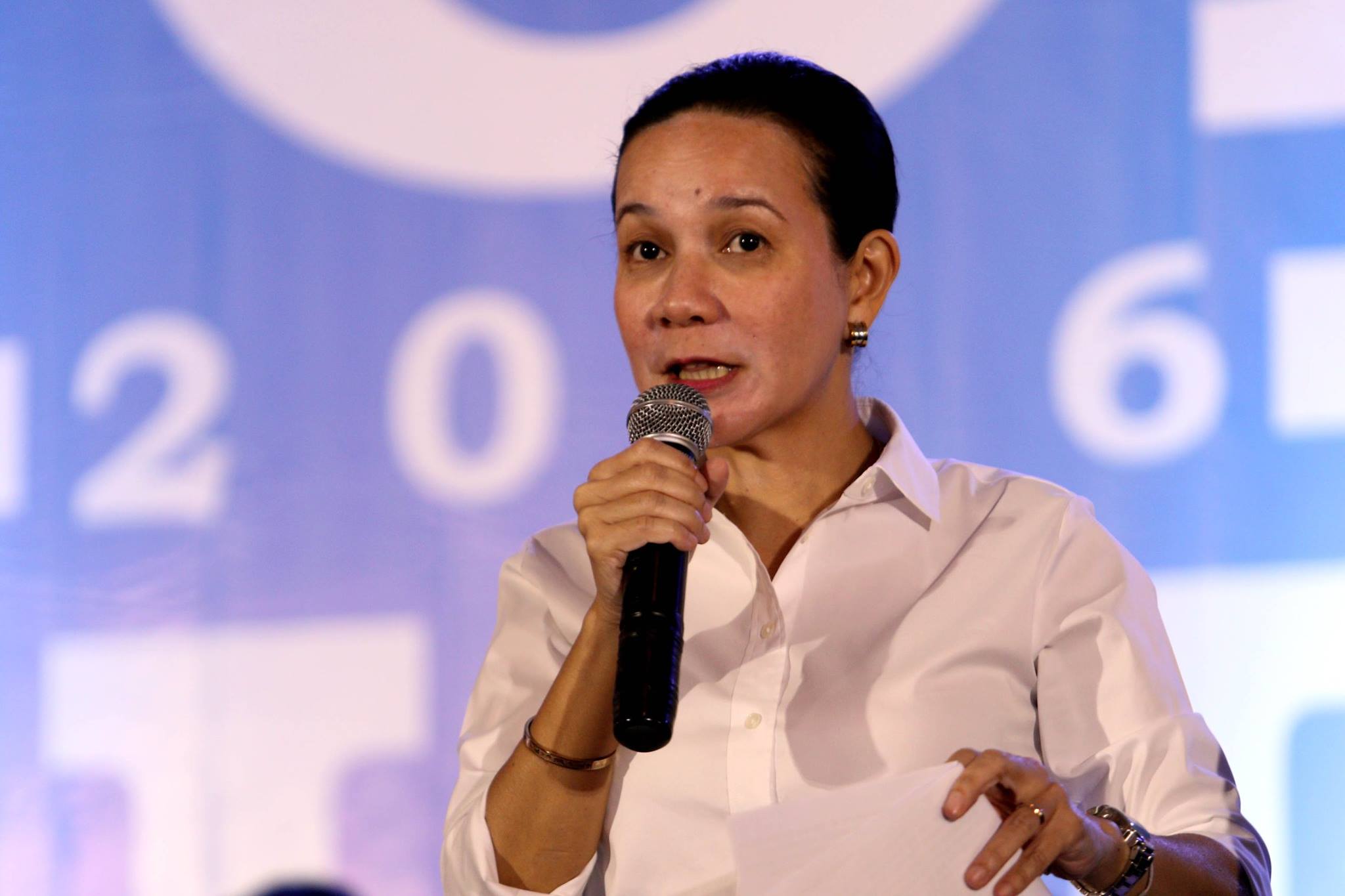
MANILA – Senator Grace Poe on Monday formally asked the Commission on Elections (Comelec) en banc to reverse the resolution of its Second Division that ordered the cancellation of her certificate of candidacy (COC) for president due to an alleged false statement on her period of residency in the Philippines.
In a motion for reconsideration, her lawyer George Garcia insisted that Poe did not commit a “material misrepresentation” with respect to her compliance with the 10-year residency requirement when she declared in her COC that she will be a resident of the country for “10 years and 11 months” by the elections of May 9, 2016.
“Respondent (Poe) had no intention to deceive the electorate or to hide a fact of disqualification with respect to her period of residency in the Philippines,” Garcia said in a press statement.
Garcia argued that the resolution of the Second Division was rendered in “complete and utter disregard of the overwhelming evidence on record” and “contrary to applicable jurisprudence as to amount to a capricious and whimsical judgment.”
The lawyer assailed the Second Division for relying solely on the statements Poe made in the COC she filed when she ran for the Senate in 2013, while disregarding the voluminous documents she submitted proving that she has been an actual resident of the Philippines since May 24, 2005.
In her 2013 COC, Poe stated that she has been a resident of the country only since November 2006, or six months short of the residency requirement for her to qualify as candidate for president in the May 2016 polls.
Garcia, however, said Poe has explained as early as June this year that she made an honest mistake in her entry in the 2013 COC because the truth is she has been residing in the country since May 2005.
According to Poe’s lawyer, various documents they submitted with the poll body would attest to this, including a sworn “questionnaire” she filed with the U.S. State Department when was processing the renunciation of her American citizenship.
Garcia said they were able to prove Poe’s intention to stay in the Philippines for good by presenting documentary evidence in relation to the enrollment of her children in local schools in June 2005, and the purchase of a residential lot and the construction of their family home in Quezon City, shortly after selling their house in the U.S. in early 2006.
She also secured an identification card from the Bureau of Internal Revenue in July 2005, proving that she has resumed being a Filipino taxpayer for more than 10 years now.
“If the Second Division considered these pieces of evidence, it would have found that [Poe’s] statement that she will be a resident of the Philippines for 10 years and 11 months by May 2016 is not false,” Garcia said.
He said Poe’s declarations in her latest COC reflect her actual period of residency in the Philippines and correct the errors in her 2013 COC.
“In indicating in her COC for President her period of residence in the Philippines to be ‘10 years, 11 months,’ [Poe] acted in utmost good faith, relying on Supreme Court pronouncements that a candidate is not estopped from proving her actual residence in the Philippines as a question of fact,” Garcia said.
Citing the Rules on Evidence, Garcia said the statements made by Poe in her 2013 COC were “not conclusive” and could not be used as evidence against her.
He also criticized the Second Division for disregarding well-established jurisprudence that are applicable to Poe’s case, including the 1995 SC decision allowing former First Lady Imelda Marcos to run as congresswoman in Leyte.
In the case of Mrs. Marcos, Garcia said the SC held that “the fact of residence, not a statement in a COC, which ought to be decisive in determining compliance with constitutional or statutory residency requirements.”
At the same time, Garcia said the Second Division committed a “grave error” when it ruled that Poe’s statement in her COC regarding her natural-born Filipino citizenship is false.
He maintained that Poe, although a foundling, is a natural-born Filipino citizen under the Philippine Constitution, customary international law and domestic laws.
The counsel said the Second Division erred in disregarding the Nov. 17 decision of the Senate Electoral Tribunal (SET) upholding the qualification of a foundling like Poe for an elective office similarly requiring natural-born citizenship.
The ruling of SET, which is the sole and exclusive judge of the qualifications of members of the Senate, became final on Dec. 3.
“The Second Division should have observed becoming modesty by taking into consideration and giving persuasive weight to the decision… of the [SET] – so far the first (and only) ruling by any tribunal in the Philippines with jurisdiction to rule on the natural-born citizenship of foundlings as a qualification for elective office,” Garcia said.
Garcia also argued that the Comelec has no jurisdiction to rule on Poe’s ineligibility as a presidential candidate.
He said the poll body is merely an “enforcer” or “administrator” of election laws and its power is limited to determining the qualifications of “elective officials only,” citing pertinent provisions in the Omnibus Election Code (OEC).
“The power to pass upon the qualifications of a candidate for President who does not clearly fall under [pertinent OEC provisions], is not a power granted to Comelec,” Garcia said.
Under the present constitutional setup, Garcia said that questions pertaining to a president’s qualifications can only be determined by the Presidential Electoral Tribunal (PET), but only after elections or when a winning candidate has been proclaimed and has assumed office.
”The Constitution vests the sole and exclusive jurisdiction over questions relating to qualifications of the President to the Supreme Court sitting as the [PET],” Garcia explained.
He added: “Such grant of power necessarily involves a ‘withdrawal of the same’ from the [Comelec]. Giving the Comelec the power to resolve questions of qualifications of presidential candidates would amount to an unconstitutional diminution of the authority of the PET.